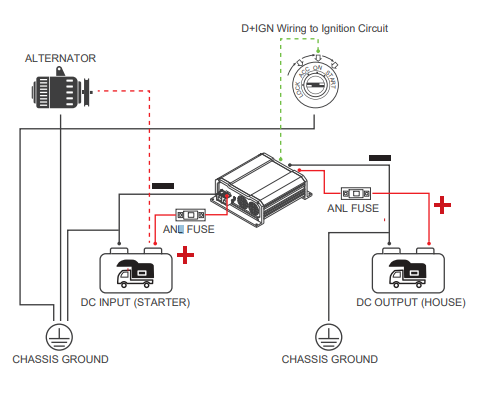
Member III
I decided on adding a house battery, so I've ordered the following:
Renogy 20A DCDC Charger (would like to upgrade to Redarc 1225 in the future, but not in the budget now)
Odyssey PC1100
American Adventure Labs rear cargo bracket (Jeep JL)
I was planning on a 70amp fuse and 4 gauge wire. Are ANL fuses ideal, or are there other types I should consider? I will be wiring as below. Anything I am missing? Any advice?

Renogy 20A DCDC Charger (would like to upgrade to Redarc 1225 in the future, but not in the budget now)
Odyssey PC1100
American Adventure Labs rear cargo bracket (Jeep JL)
I was planning on a 70amp fuse and 4 gauge wire. Are ANL fuses ideal, or are there other types I should consider? I will be wiring as below. Anything I am missing? Any advice?



